H.E.R. on shedding her anonymity and conquering R&B
- Published
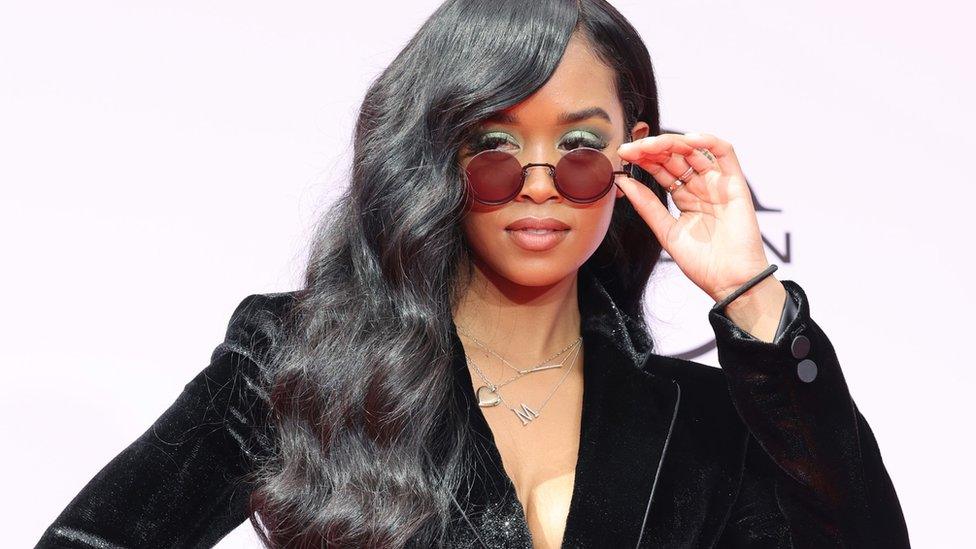
What goes through your mind when you win a Grammy?
Disbelief, maybe. Serotonin, certainly. And, for US R&B star H.E.R, just a little bit of cognitive dissonance.
"One of the first things I thought was, 'What? I beat Beyoncé?'" says the singer, recalling the moment she won Song Of The Year at this year's ceremony.
"There were some heavy hitters in that category, you know? Billie Eilish and Post Malone. So, oh my gosh, when Trevor Noah called my name, I couldn't believe it."
The R&B star was recognised for her passionate cri de cœur I Can't Breathe, which quoted the dying words of George Floyd.
Accepting the prize, H.E.R. said she never imagined "that my fear and my pain would turn into impact".
Even now the singer, born Gabriella Wilson, is amazed and humbled that a song she recorded in her bedroom had become so pivotal to the Black Lives Matter movement.
Allow YouTube content?
This article contains content provided by Google YouTube. We ask for your permission before anything is loaded, as they may be using cookies and other technologies. You may want to read Google’s cookie policy, external and privacy policy, external before accepting. To view this content choose ‘accept and continue’.
Wilson says she was quarantined at her mother's house last year when inspiration struck.
"The George Floyd protests were everywhere - on social media, on the news - and I couldn't look away," she says.
"I got on the phone with Tiara Thomas, an artist I work a lot with, and we just started talking about pain, anxiety, and the fact this could be one of our family members.
"Then the song kind of wrote itself. I picked up the guitar that stays next to my bed at my mom's house - my first acoustic guitar that I've had since I was nine years old - and I started playing those chords and singing those words, 'I can't breathe.'
"Tiara was like, 'Yo, that just gave me chills.'"
Realising she'd expressed something that "needed to be said", Wilson immediately recorded the song into her phone and sent it to her producer, Dernst "D'Mile" Emile II, who built a bluesy, acoustic track around it.
"So the guitar you hear is the same guitar I played into Voice Notes in my bedroom," she says.
But Wilson still wasn't satisfied. She felt the first two verses "weren't enough" and started writing the song's most gut-wrenching section - an assertive, 32-bar, spoken-word coda, where she tackles the fundamental roots of American racism.
"You are desensitised to pulling triggers on innocent lives / Because that's how we got here in the first place."
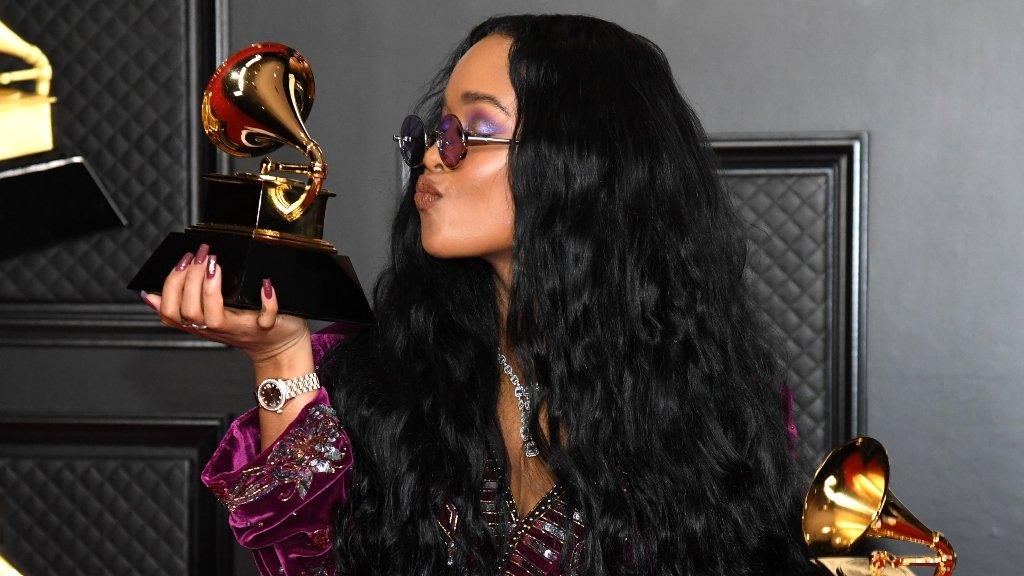
The singer has won four Grammys over the course of her career
Powerful and essential, the song's victory at the Grammys was especially notable because it came amid a wider conversation about the lack of recognition for black artists.
Canadian pop star The Weeknd, who had 2020's biggest-selling album, didn't receive a single nomination, and vowed to boycott the ceremony in the future. In doing so, he joined a roll-call of prominent artists - including Kanye West, Jay-Z, Frank Ocean and Kendrick Lamar - who have criticised the ceremony's poor track record in rewarding black musicians.
"Personally, I can't speak on [something] I haven't necessarily experienced myself," says Wilson, who has four Grammys to her name. "But I know that things are changing."
'The same old guys'
She says 2020 was an "awakening" for the music industry, and notes the work of the Black Music Coalition in tackling inequality, but admits progress has been sluggish.
"The problem is the representation," she says. "The people that are often making decisions behind the scenes are not people that look like us. All of those things are changing... but yeah, it's a tough thing."
The singer-songwriter has the opportunity to effect change from within. She was recently appointed to the voting academy of both the Grammys and the Oscars - where she won best original song earlier this year.
"That's what it's about - bringing in the new generation. It shouldn't just be the same old guys voting," she says.
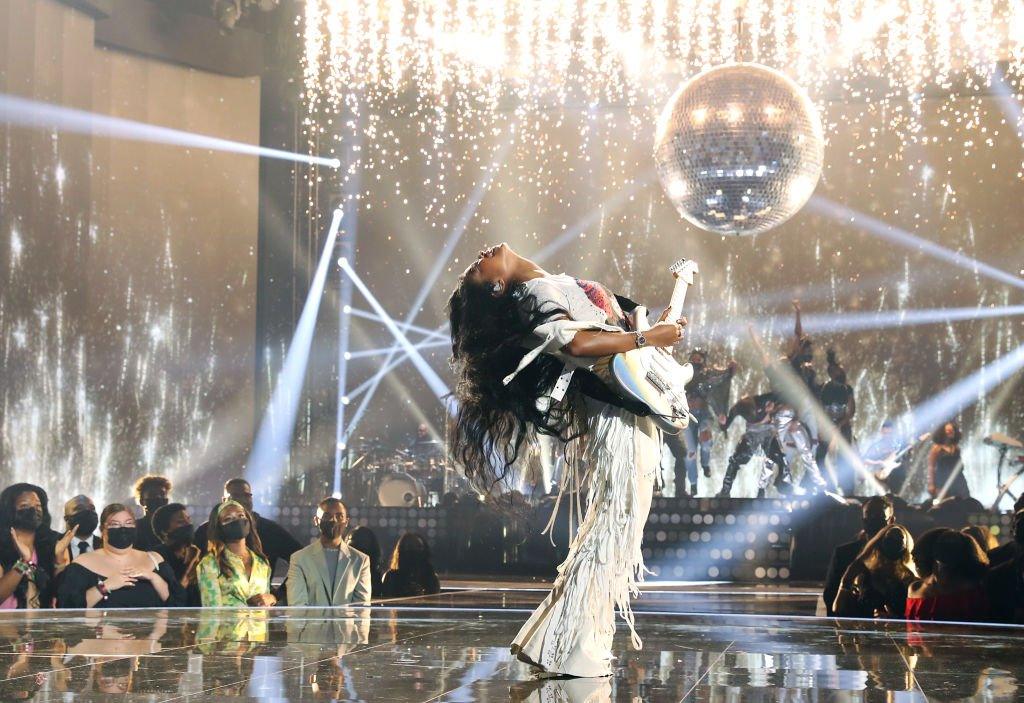
The star plays drums, piano, bass and guitar but says she's lost count of the total number of instruments she can play
Wilson is just 24 but she already has a CV most artists would be jealous of.
In addition to her Oscar and Grammy Awards, she performed America The Beautiful at this year's Super Bowl, and has been involved in 13 records that have either gone multi-platinum, platinum or gold. This August, she'll play two shows with the LA Philharmonic at the iconic Hollywood Bowl.
It's a career she's been preparing for since she was a child, growing up in San Francisco's Bay Area in the crowded family home she shared with her parents, grandparents and uncle.
'Silly' poems
She won her first two awards at the age of eight months, scooping best dress and most popular baby in a 1997 baby pageant. But she soon turned her attention to music, learning piano, bass guitar and drums; and making occasional appearances with her dad's band, Urban Bushmen, as a singer.
At the age of eight, she even published her first collection of poems, external. "They were silly," she says now, "but it introduced me to songwriting... and I eventually competed in high school, in spoken word."
Deemed a child prodigy, she made her acting debut alongside Justin Bieber in the 2009 TV film School Gyrls, and sang at New York's famed Apollo Theatre the same year, performing a cover of Aretha Franklin's Freeway Of Love.
That led to her first TV appearance on Good Morning America, aged 10, where she sang Alicia Keys' If I Ain't Got You.
"I want to be a singer, a songwriter and a musician," she told the hosts, external. "And I want to also be a dentist because I think taking care of teeth is important!"
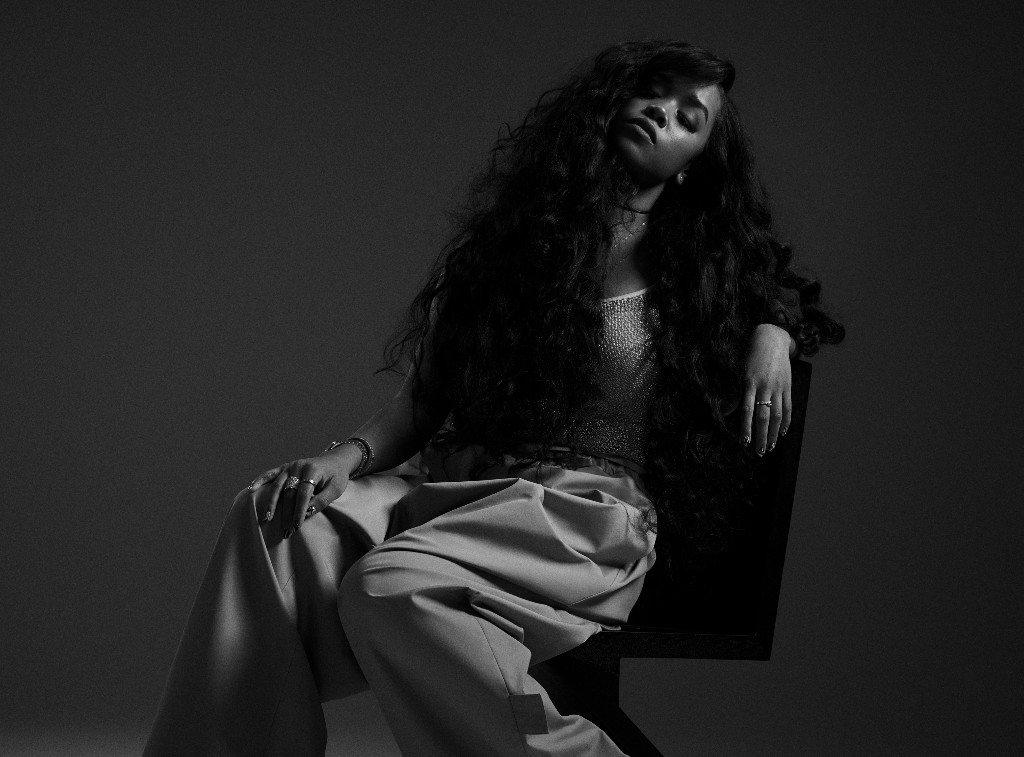
Dreams of dentistry disappeared after she was signed to RCA records in 2011, in a deal arranged by Alicia Keys' management company.
Displaying a level-headedness that's become a hallmark of her career, however, the 14-year-old didn't expect to become famous overnight.
"I knew good things took time. I was still in high school and I had no desire to be home-schooled or anything like that. Of course I was anxious to put out music but I knew the right time would come."
Soon, she was dividing her time between the classroom and the recording studio, learning the ropes from some of the industry's biggest songwriters, including multiple Grammy winners Babyface and Claude Kelly
"I actually missed my junior prom to work with Ne-Yo," Wilson laughs. "So there were moments like that, where I felt like, 'Wow, I'm preparing myself to be able to do what I love.'"
Hiding H.E.R. identity
When she emerged in 2016 with the swirling R&B jam, Focus, it was under the mysterious pseudonym H.E.R.
Even when the song went platinum, she refused interview requests, and her face was obscured in publicity shots and music videos.
"I really wanted to get people to focus on the music," she explains. "During that time people were getting lost in lifestyle stuff - these perfect, filtered lives on social media, which are kind of false realities. I wanted to get back to the realness.
"So I said, 'I want the cover to just be a silhouette, and I don't want my name on it. I don't want anybody to know where it comes from.'"
Allow YouTube content?
This article contains content provided by Google YouTube. We ask for your permission before anything is loaded, as they may be using cookies and other technologies. You may want to read Google’s cookie policy, external and privacy policy, external before accepting. To view this content choose ‘accept and continue’.
In contrast to her public image, the songs were intimate and personal. Inspired by high school and heartbreaks, the slow-burning grooves of Best Part and Could've Been felt like glimpses into Wilson's diary. Fittingly, her nom de tune was an acronym for Having Everything Revealed.
"Even though I don't show my face and I don't tell people who I am - really, you get to know who I am in my music," she said in a radio show interview in 2018, external.
Looking back, she says anonymity allowed her to be lyrically vulnerable on her early EPs, especially as a young woman who was still "figuring out who I am".
Although she still values her privacy, Wilson is happier to be in the public eye now.
"I'm a lot more confident in my perspective on the world and in my values," she says. "And the music's a lot more definitive, I guess. It's a lot more sure."
It helps, she adds, that people don't recognise her without her trademark full-moon sunglasses - sort of like a musical Clark Kent.
"But I'm learning to give more," she says. "I know that I want to be more connected and I'm OK with showing a little bit more of myself to the world as I release this music."
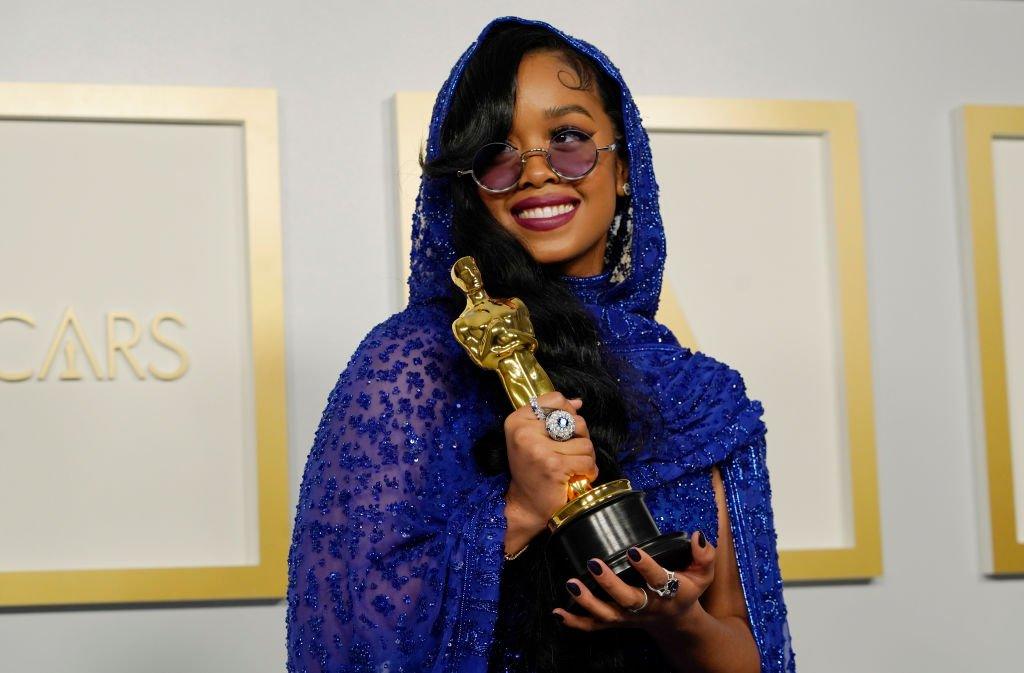
Wilson won best original song at the 2021 Oscars, for Fight For You from the film Judas & The Black Messiah
Having put in years of hard work, the 24-year-old has just released her first full-length album, Back Of My Mind - although she admits "it doesn't seem right to call it a debut after four Grammys and an Oscar".
Sensual, chilled out and poetic, it showcases her sensational soul voice and multi-instrumental prowess, and finds a way to balance old-school songwriting with the digital filters and trap-hop beats of modern R&B.
Stand-outs include the languid jazz of Bloody Waters, external, in which Wilson calls out "corporate racists"; and the sparkling Cheat Code, external, which wouldn't sound out of place on The Miseducation Of Lauryn Hill.
But perhaps the most revealing song is We Made It - a celebration of Wilson's success, with a subtle two fingers to her doubters.
"All the things they said that I can't be / Revenge taste just like candy."
It's a riposte to critics "back in the day who said, 'She's gonna be shelved.' Or, 'She only does one sound,'" the singer says.
"I think I've quieted a lot of those doubts and, to me, success is the best revenge.
"I don't have to say anything. The revenge is in the music."

Follow us on Facebook, external, or on Twitter @BBCNewsEnts, external. If you have a story suggestion email entertainment.news@bbc.co.uk, external.